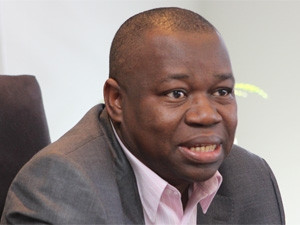
Suggestions that government and its roads agency are afraid of taxi associations and owners are baseless and inaccurate, says the SA National Roads Agency (Sanral).
This comes in response to the impression that fear of violence and taxi wars motivated the decision to excuse SA's minibus taxis from paying e-tolls.
A decision taken by Cabinet in 2011, to exempt SA's minibus taxis from paying e-tolls, has come under debate again, following the Quadpara Association of SA's ongoing fight for the same immunity.
The Opposition to Urban Tolling Alliance (Outa) has contested the fact that taxis - which it says do not constitute public transport - get "free passage". It maintains the decision was introduced shortly prior to the planned initial launch date in early 2011, as the taxi industry had threatened to blockade the freeways and boycott the system if taxis were forced to pay.
Select few
Sanral spokesperson Vusi Mona says there will be opportunity for individuals or entities to apply for exemption after e-tolling goes live. Currently, however, there is a select group of emergency and law enforcement vehicles and taxis that government places under "commuter public transport" that are excused from paying the e-road tax.
The following categories of vehicles are exempt from the payment of e-tolls:
* SA Police Services vehicles;
* SSA National Defence Force vehicles;
* Metro Police vehicles for the Tshwane, Johannesburg and Ekurhuleni metropolitan areas;
* Emergency vehicles, including ambulance services and fire brigade vehicles; and
* Qualifying commuter public transport.
While it is generally accepted that emergency and law enforcement vehicles be exempt, anti-toll parties and motorists have questioned why taxis should be able to get away scot-free. Sanral's answer to the critics is that taxis transport the poor, who are already spending a huge chunk of their disposable income on transport.
Outa previously questioned this motive. "If it is to reduce the burden on the poor, what about other road users who are also poor, and make use of carpooling?" - but Mona says those who carpool benefit already, as they will pay less for using the improved highways than they would have otherwise paid.
"The point we must make about the Gauteng Freeway Improvement Project is that users benefit from the improvements that results in travel time savings and reduction in vehicle operating costs."
Mona points out that no one is excluded from using public transport - including taxi services. "Then you have people who own their own vehicles, who can afford to pay for the maintenance of improved roads."
Share